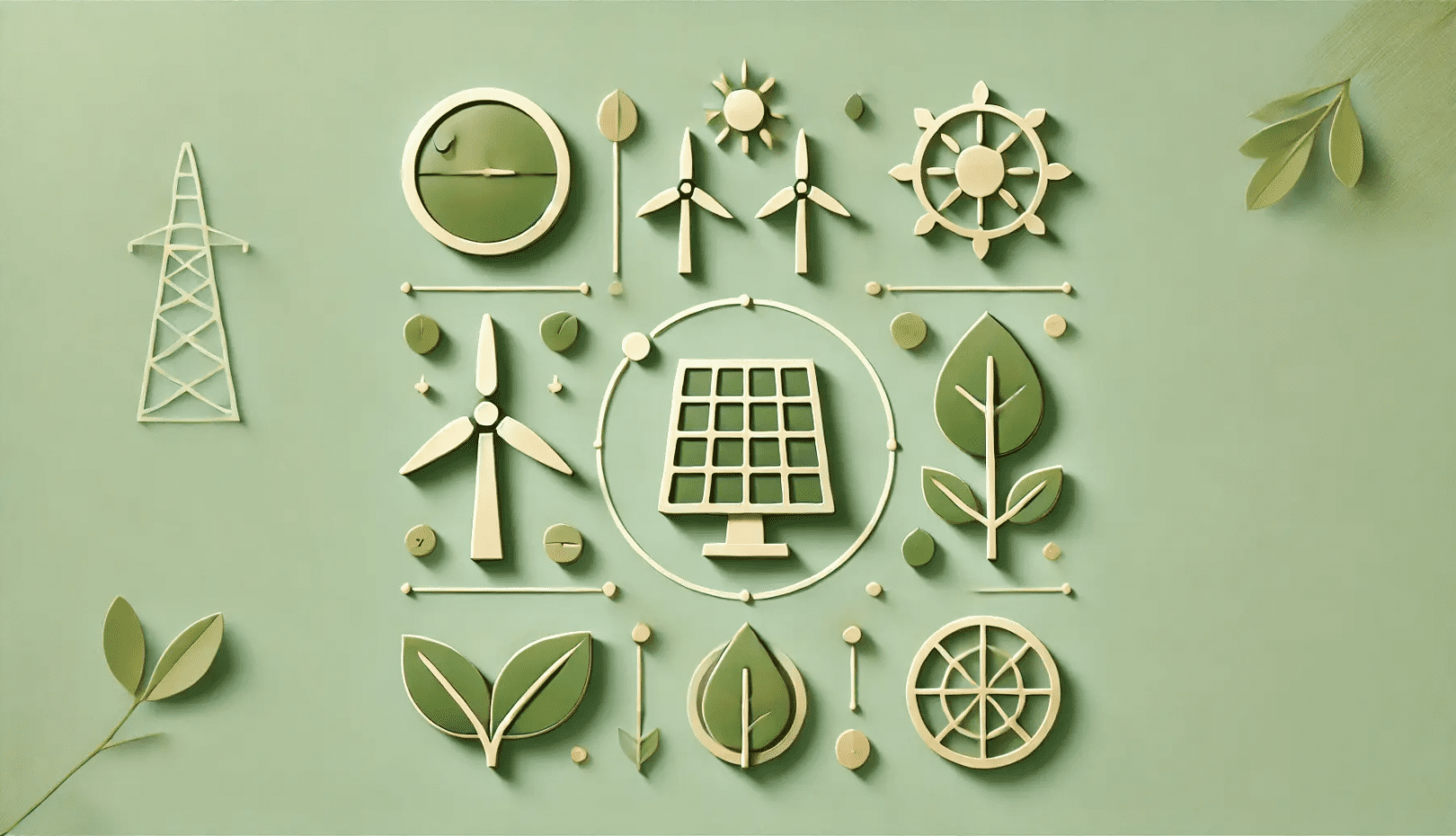Green Technology Trends Revolutionizing Industries in 2025
As the world embraces sustainability, green technology is emerging as a powerful force driving innovation across industries. These technologies not only aim to mitigate environmental harm but also open new opportunities for businesses to thrive sustainably. Here are the top green technology trends revolutionizing industries in 2025:
- Renewable Energy Innovations
- Solar and Wind Advancements: Next-gen solar panels with higher efficiency and offshore wind farms with floating turbines are making renewable energy more accessible and reliable.
- Energy Storage Breakthroughs: Long-duration energy storage systems, such as solid-state batteries, are solving the challenge of storing surplus renewable energy for continuous use.
- Electric and Autonomous Vehicles (EVs/AVs)
- Expanded EV Adoption: Innovations in battery technology, such as fast-charging and extended-range batteries, are accelerating EV adoption globally.
- Green AVs: Autonomous vehicles are integrating green energy sources and AI to optimize routes, reduce emissions, and enhance fuel efficiency.
- Circular Economy Solutions
- Recycling and Upcycling: Companies are developing advanced recycling technologies to convert waste into valuable materials, reducing dependency on raw resources.
- Product-as-a-Service Models: Subscription-based models are replacing ownership, encouraging reuse and recycling of products.
- Sustainable Agriculture Technology
- Vertical Farming: controlled-environment agriculture is reducing water usage and maximizing yield in urban areas, addressing food security issues sustainably.
- Precision Farming: IoT sensors, AI, and drones are optimizing water, pesticide, and fertilizer use, minimizing environmental impact while boosting productivity.
- Green Construction and Smart Cities
- Energy-Efficient Buildings: Green building materials like cross-laminated timber (CLT) and energy-efficient designs are becoming standard in construction.
- Smart City Innovations: IoT-enabled smart grids, efficient waste management systems, and green urban planning are reducing the carbon footprint of cities.
- Carbon Capture and Utilization (CCU)
- Direct Air Capture (DAC): Companies are deploying machines to capture CO2 directly from the atmosphere and use it in industrial processes or convert it into fuel.
- Algae-Based Solutions: Algae farms are being developed to absorb CO2 while producing biofuels and other sustainable products.
- Hydrogen Economy
- Green Hydrogen: Hydrogen produced using renewable energy is gaining traction as a clean energy source for industries, transportation, and power generation.
- Fuel Cell Technology: Hydrogen fuel cells are being adopted in heavy industries and long-haul transportation, providing a zero-emission alternative to fossil fuels.
- AI-Driven Sustainability
- Energy Optimization: AI algorithms are enhancing energy efficiency in industrial operations by predicting usage patterns and automating controls.
- Environmental Monitoring: AI-powered tools track pollution levels, biodiversity, and climate patterns to guide environmental policy and action.
- Bioplastics and Sustainable Materials
- Plant-Based Plastics: Bioplastics derived from corn, sugarcane, and algae are replacing traditional petroleum-based plastics.
- Innovative Packaging: Compostable and reusable packaging solutions are helping businesses reduce waste.
- Water Conservation Technologies
- Desalination Advancements: Energy-efficient desalination methods are providing clean water in arid regions.
- Smart Water Management: IoT and AI are being used to monitor and optimize water usage in agriculture, industries, and households.
Driving a Greener Future
These green technology trends are not just reshaping industries but also redefining how businesses operate in a sustainable world. From renewable energy to AI-driven innovations, these advancements are paving the way for a greener future while creating new opportunities for growth and innovation.
By embracing these technologies, industries can reduce their environmental impact, achieve long-term cost savings, and meet the rising demand for eco-friendly products and services. The future is green, and the time to act is now!


